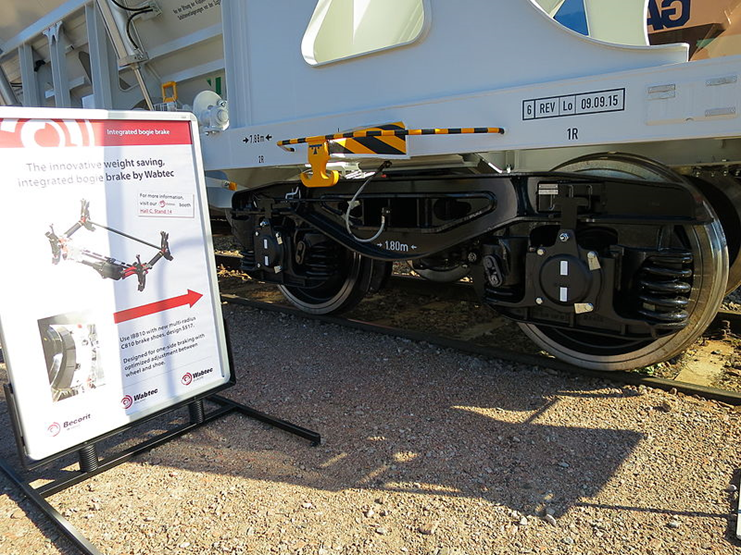
Charles R. Goulding and Ryan Donley examine the latest in 3D printing impacts in the railroad industry.
Wabtec CEO Rafael Santana adamantly pitched for freight rail research in Pittsburgh. In late May 2021, Pittsburgh lawmakers introduced new legislation to establish a bill prioritizing this effort in the area. The Freight Rail Innovation Act offers $600 million over five years for a research institute to carry out a research and development program for rail technology such as zero-emission locomotives. The proposed Act states:
“The Freight Rail Innovation Act will develop technologies for the design, development, manufacturing and operation of zero-emission battery and hydrogen-powered freight locomotives. It will also accelerate the deployment of zero-emission locomotives, including passenger locomotives, as well as support supply chains, advance freight and logistics systems, and participate in related workforce development and education initiatives.”
- U.S. Representatives: Conor Lamb (D-PA) and Mike Doyle (D-PA)
- Companioned legislation presented by U.S. Senator Bob Casey (D-PA)
The proposed bill does not directly mention Wabtec; however, Wabtec recently announced an establishment of a Freight Rail Innovation Institute which includes Wabtec, Carnegie Mellon University and Genessee and Wyoming (G&W). The public-private partner-led institute could be exactly what grants a federal investment under the Freight Rail Innovation Act in coalition with federal transportation and energy departments. Wabtec could further benefit from knowledge sharing related to the large European Mobility Goes Additive (MGA) industry group.
Wabtec’s advancements in rail technology have been highly successful and a merger with GE Transporation in 2019 pursuant to GE’s spinoff elevated the company to the forefront of locomotives. The merger also brought together additive manufacturing initiatives specifically in the locomotives industry as Wabtec has a large number of labs focused on additive manufacturing and utilizes GE’s industrial 3D printing capabilities. A portion of these labs are located in Pennsylvania regions and a significant number of Wabtec’s total engineers are located in the region as well.
Wabtec’s 3D printing initiatives are necessary to compete with Europe and China in the rail industry. Europe’s MGA 3D printing developments should be monitored closely as the group continues to accelerate rail solutions in the market. China continues to dominate the rail industry in both passenger and freight transport as more technological breakthroughs are accumulated and applied through powerful multi-national enterprises seeking development in the Chinese regions.
Wabtec has its sights set on environmental and rail safety mandates, with federal investment in the newly established Freight Rail Innovation Institute, the exploration of additive manufacturing and retrofitting of locomotives with hydrogen fuel cells and autonomous technology could be significant. Transportation has long been at the center of safety and clean technology initiatives, Wabtec is set in place to be a leader in the next generation of locomotive technologies. The recent Canadian National acquisition of Kansas City Southern (KCS) should also give Wabtec a new stronger three-country rail network to support transportation geographically near Pittsburgh.
The Research & Development Tax Credit
Enacted in 1981, the now permanent Federal Research and Development (R&D) Tax Credit allows a credit that typically ranges from 4%-7% of eligible spending for new and improved products and processes. Qualified research must meet the following four criteria:
- Must be technological in nature
- Must be a component of the taxpayer’s business
- Must represent R&D in the experimental sense and generally includes all such costs related to the development or improvement of a product or process
- Must eliminate uncertainty through a process of experimentation that considers one or more alternatives
Eligible costs include US employee wages, cost of supplies consumed in the R&D process, cost of pre-production testing, US contract research expenses, and certain costs associated with developing a patent.
On December 18, 2015, President Obama signed the PATH Act, making the R&D Tax Credit permanent. Beginning in 2016, the R&D credit can be used to offset Alternative Minimum tax for companies with revenue below $50MM and, startup businesses can obtain up to $250,000 per year in payroll tax cash rebates.
Conclusion
Wabtec has high ambitions for progressing the locomotive industry through research and development innovations. CEO Rafael Santana’s push for legislation with assistance from several Pennsylvania lawmakers should set up opportunities for advancements in U.S. locomotive technology.
